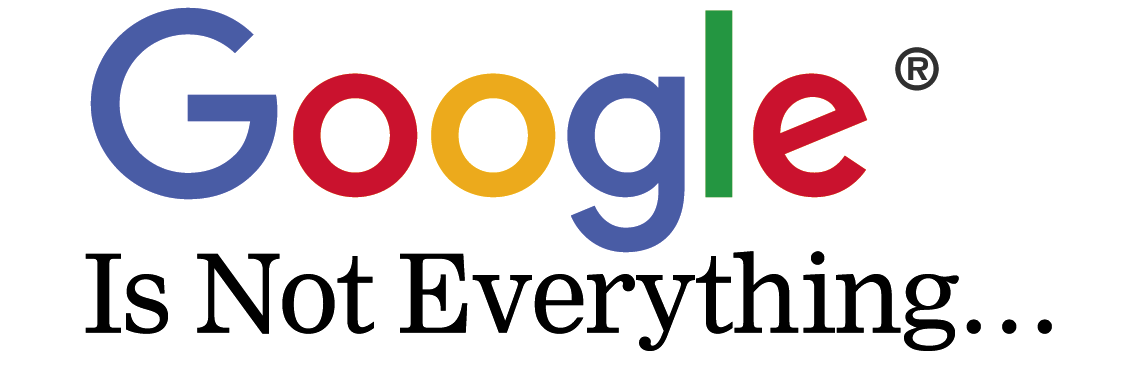
Thoughts on our Disconnection to our Motherland
Jazmyne Faith Viloria | Maui High School, Class of 2023
One long plane ride, eleven hours of squishing in a tiny seat, 5,295 miles away from the motherland, Maui’s Filipino American youth have limited opportunities to gain first-hand experience of the aura, lifestyle and traditions of the Philippines. Most kids rely on family stories, pictures, parties, community events and the internet to create a cultural identity of themselves. Even though second-hand information and limited visits, Pinoy pride and the question “What does it mean to be Filipino?” have been or are yet to be answered.
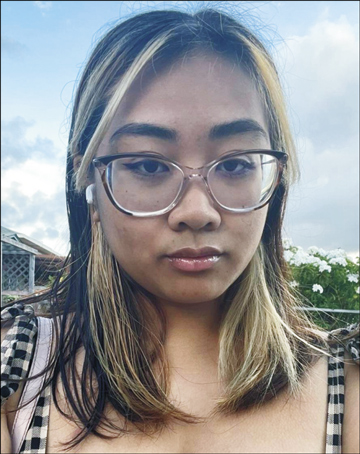
“I started to realize a disconnection to my culture ten years ago when my grandparents moved to Maui,” Janella Suzuki reveals. Janella was born and raised on Maui but still partakes in Filipino traditions through family encouragement. She still feels, however, a piece is missing. “My grandparents had trouble speaking to me since they were still learning English but easily had conversations in Tagalog. Having that language barrier between my Mom’s side of the family (parents, brothers, sisters, etc.) made me realize knowing the language is a major piece in my culture.” Since then, she has made an effort to learn Tagalog, “I’m kind of getting the hang of it because sometimes if there’s a specific topic, I can understand what they’re saying.”
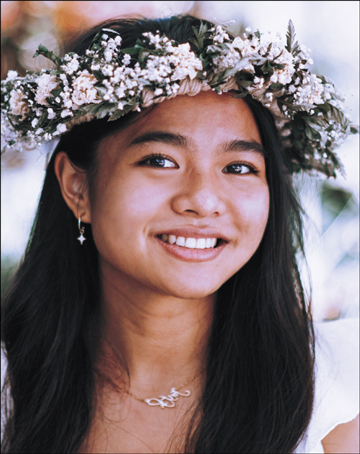
Like Janella, Faith Christy Soliven also felt disconnected from her Filipino culture due to language barriers. “I was not learning or actively taught the language as much as I wanted to. I felt out of place, understanding only the tiny bits and pieces of Ilokano and Tagalog.” In addition, she found herself surrounded and accompanied by people who did not have similar features as her. “The majority of my female friends at the time were Wasian (white and Asian) or had Eurocentric features. It’s no one’s fault in particular but I always felt insecure when looking in the mirror as a pre-teen.” As she advanced to high school, Faith gained confidence and embraced her features through a different genre. “When I began surrounding myself with Filipino songs, movies, role models and communities, I felt immensely grounded in my culture.” She also found it impactful to hear her parents’ stories. “Talking stories with my Mom and family allowed me to learn about their experiences in the Philippines and values they brought home here in Hawai‘i. Trying to immerse myself in Philippine culture when I became old enough to understand it was key to appreciating and learning about it. The journey is still a work in progress but I look forward to feeling more whole in my Filipino identity every day.”
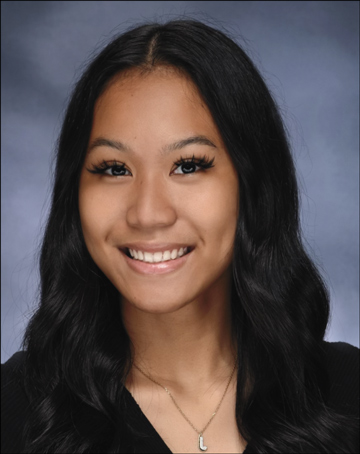
Being born in the Philippines, however, does not automatically establish a cultural identity in some Filipino American youth. Joevie Begata expresses: “Although I was born in the Philippines and practice the ‘Filipino norms’ (how to bless the elderly, eating Filipino food, speaking Tagalog etc.), I still felt disconnected with my cultural identity.” She moved to Maui at only two years old and traveled to the Philippines three times. Despite visiting prior, during her 2017 trip, she “traveled around the Northern part of Luzon (we are from South Luzon), and as we visited different Provinces, I realized I didn’t know much of the country as a whole.” From there, Joevie wanted to learn and deepen her cultural roots: “Ever since then, I’ve been speaking in Tagalog and Rincconada more. Starting from smaller phrases to carrying on conversations with family and friends. In 2019, I traveled back to the Philippines. I made certain I respected the country by learning more about landmarks and asking my relatives about our province.” After practicing the language and learning Philippine history, Joevie believes there’s just one more step to connect with her culture. “I had the great opportunity to travel back to the Philippines this summer and have a debut. I never imagined partaking in this event because I didn’t know much about it growing up. I feel this will be the moment when I truly feel that I am connected to my Filipino culture.”
Although an entire ocean separates Maui and the Philippines, its culture has strongly flowed and continues to resonate within Filipinos’ hearts, helping the next generation establish and define their Filipino identity.
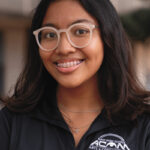 Google® Is Not Everything is a monthly column authored by high school students. The title of the column emphasizes education is more than just googling a topic. Google® is a registered trademark. This month’s guest columnist is Jazmyne Faith Viloria, a Senior at Maui High School. She is a member of SaberScribes (Maui High’s journalism club), Historian of the Video Club and Team Captain of Blue Thunder, Maui High’s Robotics club. Jazmyne is in the ACOM Pathway at Maui High, focusing on videography and photography. In her free time, she sews and refashions old clothes, journals, edits photos/videos and loves to analyze lyrics in songs. She is the daughter of Ruth Sagisi and Rudy Viloria.
Google® Is Not Everything is a monthly column authored by high school students. The title of the column emphasizes education is more than just googling a topic. Google® is a registered trademark. This month’s guest columnist is Jazmyne Faith Viloria, a Senior at Maui High School. She is a member of SaberScribes (Maui High’s journalism club), Historian of the Video Club and Team Captain of Blue Thunder, Maui High’s Robotics club. Jazmyne is in the ACOM Pathway at Maui High, focusing on videography and photography. In her free time, she sews and refashions old clothes, journals, edits photos/videos and loves to analyze lyrics in songs. She is the daughter of Ruth Sagisi and Rudy Viloria.
